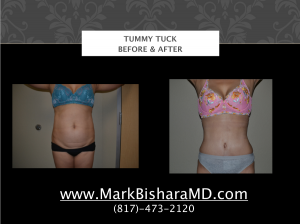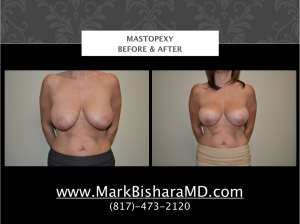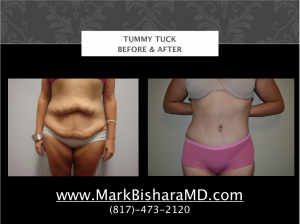Surgery After Significant Weight Loss
About forty-five million Americans diet each year and Americans spend approximately one to $2 billion a year on weight loss programs. It is believed that consumers spend about $30 billion per year trying to lose weight or prevent weight gain, and 55% of Americans are actively trying to maintain or lose weight. In the last five years weight loss surgery has experienced a tremendous resurgence. Over fifty thousand patients in the United States will undergo some form of gastric bypass surgery during the year, and the positive effects of this surgery are immeasurable. The health benefits of massive weight loss are numerous and profound.
However, after a patient experiences massive weight loss, the body skin is not able to retract to the smaller size of the body underneath. This results in large pendulous hanging breasts, significant excess underarm skin (sometimes known as bat wings), and significant lower abdominal skin and laxity that causes rashes, impairs the ability to wear normal clothes and sometimes even daily activity. In the face, this excess skin often leads to significant signs of aging when the skin is no longer able to retrace following massive weight loss.
Body Contouring is a safe and effective group of procedures that can help a patient drastically improve their appearance! Dr. Mark Bishara and The Paragon Plastic Surgery & Med Spa offer body contouring surgery designed specifically for patients who have achieved significant weight loss. Procedures that remove skin or fat, tighten and lift can be used as a complement to help your clothes fit better and allow you to participate more comfortably in your favorite activities.
Body Contouring – Are You a Candidate?
The best candidates for body contouring are people who have undergone massive weight loss and are dissatisfied with the appearance of their body, are in general good health, and have realistic expectations of what the procedure can accomplish.
Body Contouring – Plastic Surgery Procedures & Risks
Body contouring is a group of complimentary cosmetic procedures that can reshape your entire figure into a shape of your own choosing. Often times when a person is dissatisfied with their shape one or more procedures can alleviate their discomfort and provide them with the aesthetically pleasing figure they desire. Body contouring is also a safe and effective way to combat the unsightly sagging skin that often accompanies massive weight loss.
In order to reshape the body, Dr. Bishara will generally focus on a few common areas that many people often find less than attractive as the years go by. For example:
- Sagging or drooping breasts can often be overcome through a breast reduction and breast lift.
- If the skin on your arms is not as toned as the muscle underneath, an armlift or “brachioplasty” can correct unsightly droopage.
- Sometimes over the years the stomach can take on a rounded or flabby shape, and no manner of sit-ups will help, so many people elect for an abdominoplasty or tummy tuck.
- Despite the best exercise and diet regimens many people suffer a loss of tone in their buttocks. Fortunately a buttock lift can restore the tone and shape lost over the years.
- As people age, the skin on their upper thighs begins to droop out of proportion with the rest of their skin tone, so a thigh lift can often correct this unsightly mishap of genetics.
- Finally, in order to achieve an all around sense of proportion, many people elect to remove stubborn fat deposits through liposuction. This procedure restores the characteristic figure and curves many of us lose over the years.
Interested in what body contouring can do for you? Contact Dr. Mark Bishara’s Office in Mansfield and Southlake, today to learn more about the transformative treatments we offer. Call us at (817) 473-2120 to find out more information.
www.MarkBisharaMD.com












